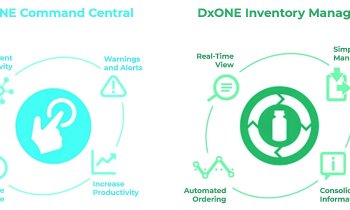Five ways to improve
Health information exchange in ERs
An emergency physician-led workgroup has published five primary and seven secondary recommendations about how to maximize the value of health information exchange (HIE) in emergency departments. The recommendations were published online Tuesday in Annals of Emergency Medicine.

"HIE helps emergency physicians - who usually do not have much information about their patients - access patient health information from multiple sources, which is essential for critical, time-sensitive decisions," said co-author Jeffrey Nielson, MD, MS of Summa Akron City Hospital in Akron, Ohio. "The ultimate goal is a nationwide health information network that will allow physicians quick access to their patients' medical histories without compromising their privacy. It is a tall order for sure, but not an impossible one."
The workgroup made five primary recommendations in support of HIE in emergency medicine:
1. Emergency physicians must be involved in regional and federal HIE activities;
2. HIE policies must be based on best practices to promote liability protection related to HIE use;
3. Federal regulatory standards must prioritize data elements specific to emergency care and have emergency-specific user design;
4. Care standards and protocols for effective integration of HIE in emergency department electronic health records (EHRs) should be developed, including workflow optimizations and pushing of important HIE information to the clinician through flags in the EHR; and
5. Local professional groups should participate with HIEs to assure delivery of appropriate emergency data.
The workgroup also published seven secondary recommendations which would significantly improve HIE for emergency physicians, though they are not focused specifically on emergency medicine.
"Significant changes are needed to support a system of effective national HIE that can rapidly and efficiently yield useful health information to health care providers in emergency departments," said co-author Jason Shapiro, MD, of the Icahn School of Medicine at Mount Sinai in New York, N.Y. "These changes should include support for emergency physician access to all relevant patient information in properly summarized understandable form. The goal of all emergency physicians is to provide safe, efficient and effective emergency care, and more access to well organized patient information helps us achieve that goal."
Source: American College of Emergency Physicians
07.08.2015









